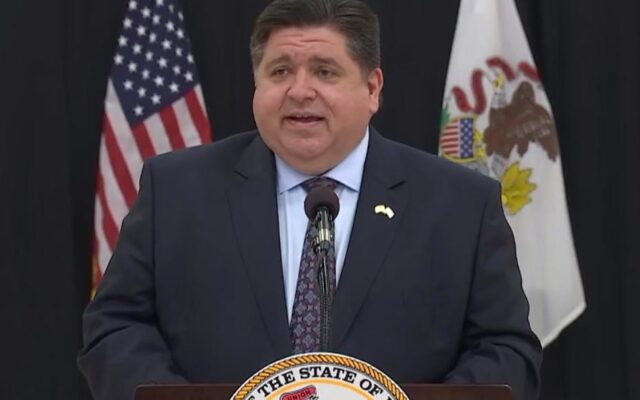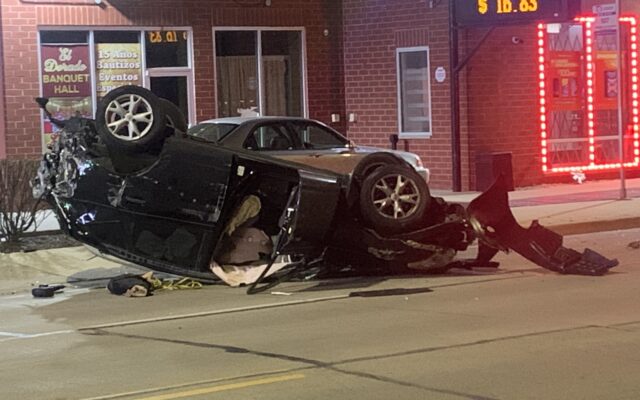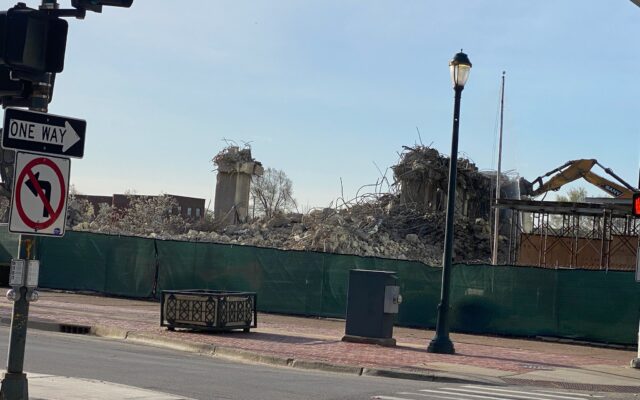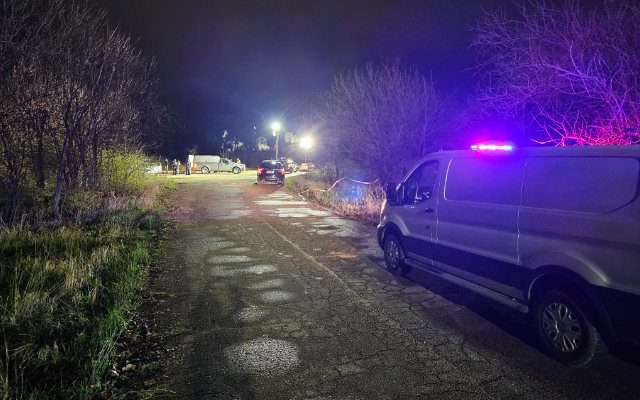Governor Pritzker Signs Bills Expanding Protection for Survivors of Sexual Assault

Today Governor JB Pritzker signed two bills aimed at making medical and legal care for victims of sexual assault broader and more accessible. HB5441 amends Illinois Criminal Code to specify that someone is unable to give consent when intoxicated, even when the accused assaulter didn’t provide the substance that intoxicated them. SB3023 expands where survivors can access treatment and for how long, as well as requiring Federally Qualified Health Centers to provide medical forensic services by trained professionals.
“We cannot have a justice system that re-traumatizes those forced to utilize it,” said Governor Pritzker. “To survivors in our state: there are no words to lessen the unimaginable trauma and pain you’ve been through. I want you to know that your Governor hears you. When you speak out, our systems will respond. It is our responsibility to give you the autonomy and justice that you deserve.”
“Compassionate policy making is good government and values people and their wellbeing by putting resources and services in place that matter,” said Lt. Governor Juliana Stratton. “This legislation does that, by ensuring that there are avenues of crucial support for survivors of sexual assault seeking the justice and healing they deserve.”
The expanded definition of consent outlined under HB5441 provides that the accused abuser knew or reasonably should have known the victim was under the influence of drugs or alcohol. The Illinois Coalition Against Sexual Assault, among others, advocated for this change to provide a clearer path for prosecution against perpetrators of sexual assault on impaired victims. Many sexual assault cases are thrown out due to negative perceptions around voluntary drinking or drug use, preventing victims from seeking justice against their attacker.
The issue was brought to State Rep. Mark Walker’s (D-Chicago) attention by Kaylyn Ahn, an 18-year-old who suffered a sexual assault while inebriated and was told the case likely would not be prosecuted for that reason. Walker, whose office Ahn had previously worked in, sponsored the legislation after hearing her story. Ahn testified in front on legislators in Springfield in support of the bill.
The amendments to the Sexual Assault Survivors Emergency Treatment Act (SASETA) outlined in SB3023 are the result of recommendations made by the Sexual Assault Medical Forensic Services Implementation Task Force, a group formed to examine the healthcare needs of sexual assault survivors and determine necessary policy changes. SASETA governs the health care that hospitals, and now qualified health centers, are required to provide victims to of sexual assault.
This new legislation allows survivors to access care under the act for 180 days, doubling the time window and extending access to those unable to receive care in the first few months after an incident. SB3203 guarantees that a victim seeking medical treatment will have access to a trained medical forensic examiner, as well as other medical staff specifically trained to best care for victims of sexual assault. Trauma-informed sexual assault treatment is important to prevent further distress for the victim, which can deter victims from reporting an assault or pursuing or continuing treatment. Training is also key to give providers the skills to collect potential evidence without contamination or destruction of that evidence.
The bill also allows victims to decline to bill their health insurance provider for the cost of emergency care if they themselves are not the primary policy holder. This allows those seeking treatment after abuse from partners or family members who share in their insurance policy to maintain confidentiality and avoid additional danger.
Governor Pritzker has spearheaded several other initiatives to protect survivors of sexual violence during his time in office. Earlier this year, Governor Pritzker announced that after decades of extensive sexual assault forensic backlogs, the number of pending sexual assault forensic assignments older than 180 days reached zero. Governor Pritzker also recently signed nation-leading legislation expanding protections for victims of sexual violence in Illinois National Guard.
“I am telling my story because my pain is not an individual loss but a systemic failure of a legal system that has time and again failed to protect us,” Kaylyn Ahn said. “No matter what you were wearing, what you were drinking, or whether you were in a relationship with them, rape is never your fault. In signing this bill, we are listening to the power of survivors.”
“There are still too many in our society who find ways to blame the victim as somehow responsible for sexual assault,” State Rep. Mark Walker (D-Chicago) said. “This has to stop. Anyone who would assault a person unable to give consent is a rapist and should be held entirely responsible. Our laws should ensure a survivor can seek justice and know our criminal justice system believes them and stands with them. This bill may be simple, but it will go a long way in ensuring more rapists will be brought to justice.”
“Survivors deserve a justice system that supports them during one of the most difficult times of their lives,” said State Senator Ann Gillespie (D-Arlington Heights). “HB5441 removes a loophole that should never have existed and allows survivors to seek justice.”
“The trauma associated with sexual assault is already profound – the last thing survivors need is the added stress of a lack of privacy and confidentiality,” said State Senator Julie Morrison (D-Lake Forest). “SB3023 will allow people to feel more secure in seeking a rape exam.”
“Survivors of sexual assault deserve a system that that supports them and provides them with justice and support – not works against them,” said State Senator Melinda Bush (D-Grayslake). “By addressing loopholes in current law and providing survivors with more access to care, we are giving them greater means to cope and grieve.”
“Survivors of sexual assault need the system to work a lot better for them to seek and receive health care services as they process the trauma they’ve been through,“ said State Senator Mike Simmons (D-Chicago). “This measure provides a significant improvement by removing costs, bills, and increases the timeline during which survivors can access treatment. I am honored to support this legislation.”
“As a longtime advocate for survivors, getting to work on these bills is an honor,” said State Rep. Kelly Cassidy (D-Chicago). “Working with survivors who use their experience to engage in advocacy to ensure others are better protected than they were is awe-inspiring. Ensuring that survivors have access to appropriate care both at the time of their assault and afterward is a fundamental responsibility of our criminal justice and health systems. Similarly, our criminal justice system must constantly examine systems, procedures, and preconceived notions to ensure that we remove barriers to reporting by survivors.”
“Outdated policies unfortunately failed to protect vulnerable individuals by ensuring accountability and to support survivors with compassion and understanding of the trauma that results from one of the most horrific crimes there is,” said Rep. LaKesia Collins (D-Chicago). “These bills, which I am pleased to see Governor Pritzker sign into law, close loopholes and increase access to resources—both of which will better protect the most vulnerable Illinoisans.”
“The Illinois Coalition Against Sexual Assault applauds the passage and signing of HB 5441 and SB 3023. These important pieces of legislation affirm essential, common-sense protections and services warranted for survivors of sexual violence. HB 5441 recognizes affirmative consent as the baseline for sexual contact and helps ensure perpetrators do not escape prosecution solely because they did not personally drug a survivor before committing sexual violence. SB 3023 expands survivor access to necessary medical treatment in a timeframe that is consistent with national recommendations and provides a clearer path to navigating the complicated steps often involved with managing insurance claims and related documentation. ICASA fully supports the improved access to legal and medical services resulting from these bills,” said Carrie Ward, Chief Executive Officer, Illinois Coalition Against Sexual Assault
“Updating the definition of intoxication in our criminal code and doubling the amount of time survivors have to seek reimbursable medical attention expands their options for justice and care in the aftermath of sexual assault. We are proud of the survivors who advocated for these changes and celebrate their signing,” said Mallory Littlejohn, Legal Director at the Chicago Alliance Against Sexual Exploitation
“This bill provides survivors with more options during their difficult times,” said Monika Pitzele, MD., PHD. “By allowing them to opt out from using private insurance, it will increase access to care for those concerned for their privacy or confidentiality. It will also provide better health care by extending the duration of the voucher for follow up visits and treatments.”
Press release






